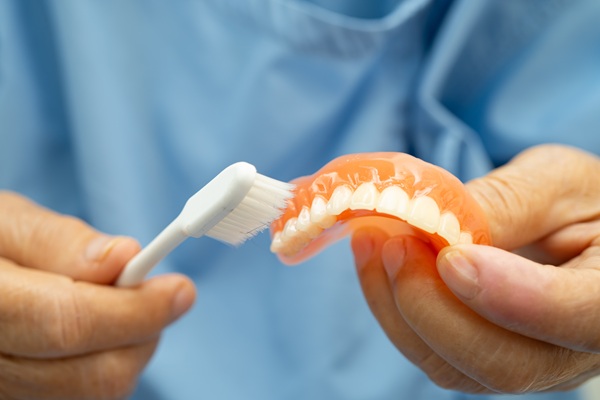How Can You Relieve TMJ Pain?

TMJ refers to the temporomandibular joint, which is located in the jaw region of the face. When the joint malfunctions, individuals suffer from TMJ disorder. TMJ disorder can lead to pain and difficulty with eating, speaking and even smiling.
Individuals suffering from TMJ disorder are often curious about treatment options from a general dentist.
General dentists treat TMJ patients
Many are surprised to learn that general dentists can diagnose and treat TMJ disorder. Nonetheless, general dentists are actually the first point of contact for individuals suffering from TMJ pain and malfunction. They are trained to care for problems in the facial region and specifically the jaw.
Options for relieving the pain associated with a TMJ diagnosis
The list below includes three common options that general dentists often prescribe to their patients who have been diagnosed with a case of TMJ.
#1 – Practicing conservative measures
Many TMJ patients will experience pain relief by following a few conservative measures. This is often the first course of treatment a dentist will offer patients who have been diagnosed with a mild case of TMJ. Examples of conservative measures include eating a soft food diet, chewing slowly and very carefully, not participating in the act of teeth grinding or clenching and avoid chewing gum. In order for patients to experience the pain relief they seek, it is necessary to perform these measures for a certain amount of time, such as a month or two.
#2 – Taking prescribed medications
A general dentist can prescribe a TMJ patient anti-inflammatory pain medications in order to reduce and even eliminate any pain they are experiencing. Anti-inflammatory medications work by reducing any swelling present, which in turn helps to lower one’s pain levels. Muscle relaxers are another type of medication that helps relieve TMJ-related pain and work by helping the jaw area become much more relaxed, which also helps to reduce one’s pain.
#3 – Apply ice packs, hot packs
Applying an ice pack often works to help reduce the pain that TMJ patients suffer from. Both ice and hot packs help to reduce muscle tension in and around the jaw area. Additionally, this practice can reduce any tooth pain one may be experiencing due to their TMJ diagnosis. Ice packs specifically help to reduce swelling that causes pain and hot packs help to relax one’s muscles, as well as increase one’s blood flow. Patients may need to use one or both, depending on their particular case of TMJ.
Experiencing TMJ-related pain?
TMJ disorder can result in pain and malfunction, which is why care from a general dentist is necessary. There are a number of ways to treat this disorder that go far and beyond the ones listed above. When looking for more information on the diagnosis, management and treatment of TMJ, it is best to consult directly with a general dentist for personalized care. Reach out today to find out more!
Request an appointment here: https://www.annarborpersonaltouchdentistry.com or call Shiva G. Rad, D.D.S. at (734) 436-0817 for an appointment in our Ann Arbor office.
Check out what others are saying about our dental services on Yelp: TMJ in Ann Arbor, MI.
Recent Posts
If you experience soreness or pain in the jaw, you may want to talk with your dentist about TMJ treatment and whether the condition is causing your pain or other issues. Temporomandibular joint dysfunction (TMJ) is a serious condition that causes stiffness in the joints of the jaw, pain, soreness, swelling, and loss of movement.…
Minor oral surgery is required for the placement of dental implants. An implant is an artificial tooth root placed in the jaw to replace lost roots that fall out when a tooth is lost. The importance of this cannot be overstated as it helps to preserve bone tissue loss in the jaw.Bone tissue loss is…
Understanding how Invisalign® works is the first thing you must do when considering this popular teeth straightening option. You will undergo an initial evaluation performed by a dental professional, who will then assign you a certain number of custom-made aligner sets, which need to be switched out every two weeks. After using the last set…
One of the challenges after replacing missing teeth is adjusting to new dentures. Although they improve your appearance and allow for better function, dentures can take some getting used to. The time it takes to adjust often depends on the amount of time you went without teeth and the type of dentures you have.Whether you…


